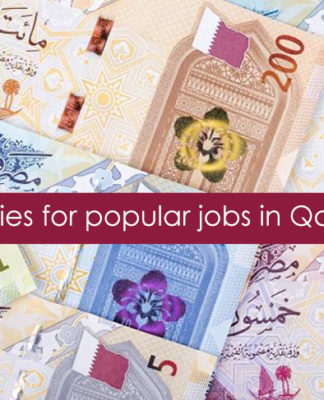
It is a debate that has been raging for years, and Aon Hewitt have added fuel to the fire with their recently published report claiming that Qatari employees demonstrate the highest engagement among national employees in the GCC, while expats working in Qatar are the least engaged of all the expats in the region.
So who is the most engaged in Qatar, the locals or the expats? Social media has been red hot with people dismissing the validity of the report, while others have backed it to the hilt. Others have claimed that it very much depends on the industry and type of company, and you can’t group the whole of the Qatari workforce together. Here we look at both sides of the argument.
The argument for the Qatari nationals
Those claiming that of the two, it is the Qataris who are more engaged point to several examples where Qataris have led successful showcase projects in the country, against cases where those led by expats have failed. There are also instances where projects that have been successfully com-pleted by nationals have also come in on or even under budget, whereas similarly successful projects run by expats have come in over budget.
At a different level, there is also the argument that many Qataris have helped to create a healthy and attractive working environment and culture in their organization, whereas there have been instances where expats have created a toxic culture in some working environments. There are people who accuse expats of being motivated and driven only by people of their own nationality.
Another argument that is leveled against expats is that whereas Qataris are keen to build a secure foundation for a strong future for the company, expats are more in it merely for the lifetime of their contract, and also actively work to try and eliminate Qataris from career development and success.
…and for the Expats
On the other hand, those that argue that it is in fact the expats who are far more engaged than the local workforce point to several factors that occur in the workplace. These include the fact that ex-pats as a rule will always arrive at work and start in good time, whereas some Qataris do not. It is not uncommon for expats to stay behind until midnight and beyond if the work needs completing, while Qataris will leave the office for family reasons, and leave the work undone.
Another case for the expats is that as a rule they mostly have extremely good presentation skills, whereas a lot of Qataris still feel too shy or lacking in confidence to present. The expat workforce also tends to be far more experienced, with more than 20 years in many cases, while the Qataris are a lot younger and inexperienced.
Conclusion
Everyone can always pick and choose examples that back up and highlight their argument. A study like this, without a customized engagement definition will always be flawed, as people are coming at the argument from opposing sides. What could be essential to define engagement on one side, may only be a “nice to have” on the other. What is the most important thing in all of this is that as a nation, and as individual businesses we need both a good local workforce, and a high quality expat workforce. And we need them to work together in harmony, for the common good. Picking over who is better is not beneficial for anyone.
And please remember, that a Qatari – the same as with any other nationality – will always like to have the ownership and the pride of their country.

























